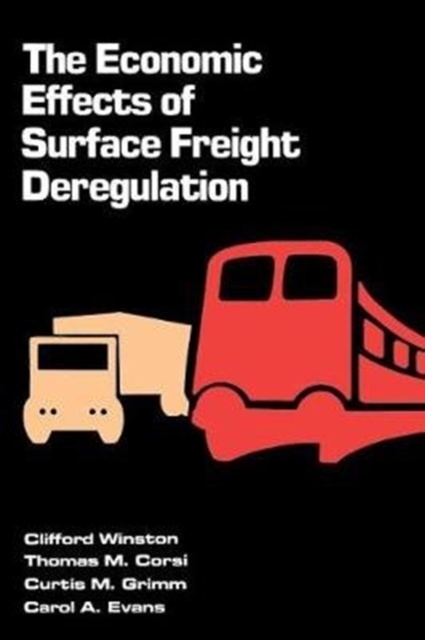
The Economic Effects of Surface Freight Deregulation Paperback / softback
by Clifford Winston, Thomas M. Corsi, Curtis M. Grimm, Carol A. Evans
Paperback / softback
Description
For close to 100 years, America's surface freight industries, primarily rail and trucking, operated under the protective wing of the U.S. government. In 1980 Congress, finding vast inefficiencies in the two industries, substantially deregulated both, opening them at last to market competition. Deregulation has brought with it many changes for firms within the industries, for their labor force, and for shippers and their customers.
Clifford Winston, Thomas M. Corsi, Curtis M. Grimm, and Carol A Evans provide a comprehensive evaluation of the effect of the deregulation legislation on the rail and trucking industries. According to the authors, deregulation has made substantial progress in solving the two most vexing problems of the surface freight transportation industry excessive rates in the trucking industry and insufficient returns on investment in the rail industry.
Competition and efficiency have returned to both industries, and although the labor force in each has suffered wage and job losses, shippers and their customers have gained roughly $20 billion a year in benefits.
The authors recommend policies that would continue to promote competition and the efficient use of highway and railway infrastructure.
Information
-
Out of Stock - We are unable to provide an estimated availability date for this product
- Format:Paperback / softback
- Pages:79 pages
- Publisher:Rowman & Littlefield
- Publication Date:30/10/2017
- Category:
- ISBN:9780815734222
Other Formats
- Hardback from £16.89
Information
-
Out of Stock - We are unable to provide an estimated availability date for this product
- Format:Paperback / softback
- Pages:79 pages
- Publisher:Rowman & Littlefield
- Publication Date:30/10/2017
- Category:
- ISBN:9780815734222






